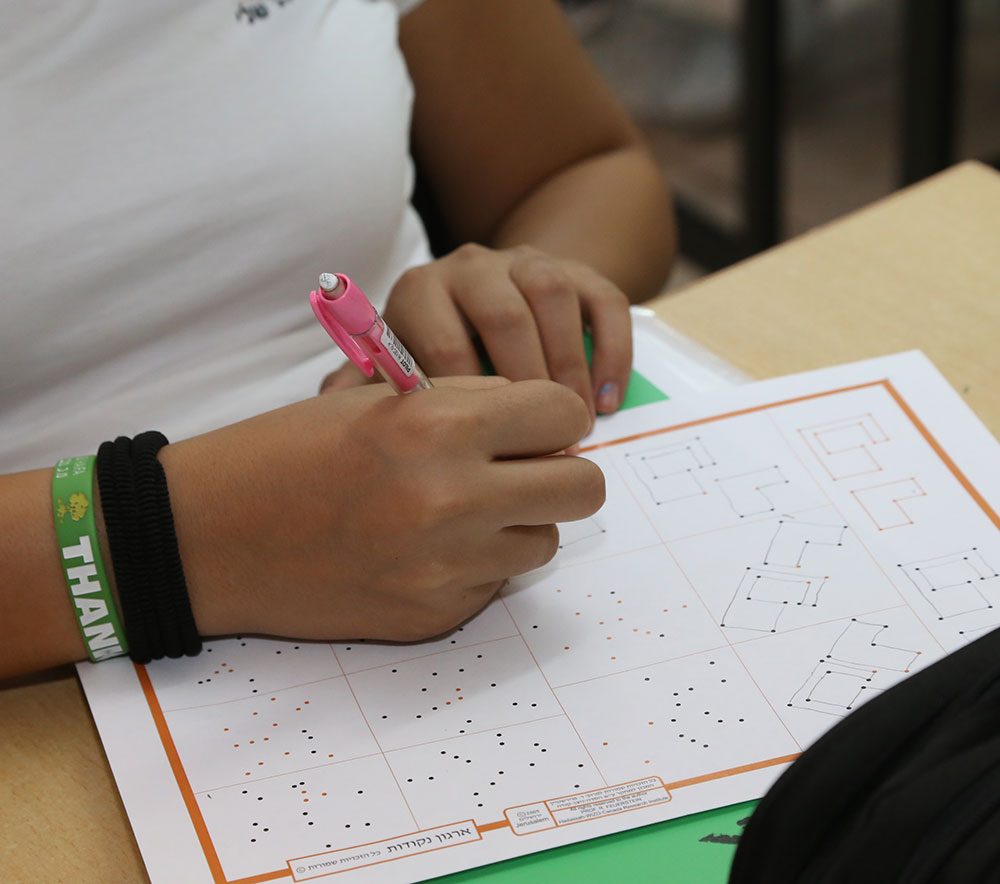Feuerstein Courses
Feuerstein Instrumental Enrichment
The Feurerstein Institute has greatly influenced and contributed to the work of NILD in Canada and the United States since 1993. NILD owes so much to Professor Reuven Feuerstein.
NILD Canada now offers Feuerstein’s Instrumental Enrichment© (FIE) as one of our academic courses. These courses offer an intervention program that enhances the cognitive skills necessary for independent thinking and learning. This unique educational method combines specially designed instruments and mediation in order to identify and enhance an individual’s learning potential.

This intervention program includes a series of paper and pencil tasks that gradually increase in levels of difficulty and abstraction. Each series focuses on a different cognitive skill, creating systematic, persistent and structured conditions to engage learners in problem-solving by developing their ability to understand and elaborate information.
FIE aims to close learning gaps, helping learners to avoid mistakes by enhancing their learning skills. Students are taught new ways of thinking by completing tasks in areas such as comparison, classification, analysis and synthesis, orientation in space and time, and hypothetical reasoning. Through the use of FIE, students gain language and knowledge about their cognitive processes that help them make better decisions, in the classroom and throughout their lives.
Standard Level 1, 2, 3 Courses
FIE’s Standard cognitive training program is designed generally for ages 10 through adult. Participants receive training in the theoretical basis for Feuerstein Instrumental Enrichment. and in the materials and didactics of the first four Instruments from the IE Program:
Standard 1 includes Organization of Dots, Comparisons, Analytic Perception, and Orientation in Space. The foundational theories of Structural Cognitive Modifiability, Mediated Learning Experience, Cognitive Map, and the Goals of Instrumental Enrichment.
Standard 2 provides training in the mediation of Categorization, Illustrations, Family Relations, Temporal (Time) Relations, and Instructions. These tools help students and adults with important academic and job skills.
Standard 3 offers Orientation in Space II, Numerical Progressions, Transitive Relations, Syllogisms, and Representational Stencil Design. These five tools are cognitively challenging and help create new neural networks for life and learning.
Basic Level 1, 2 (Early Childhood) Courses
The IE-Basic cognitive intervention program is designed for younger learners or for learners who are not yet ready for IE-Standard instruments. IE-Basic is deliberately free of specific subject matter, yet the tasks are intended to be readily transferable to all educational and everyday life situations. These instruments may be taught in the classroom, in an after-school enrichment setting, or used as a part of a clinical therapy program.
The IE-Basic instruments are unique. Not only do they teach vitally important cognitive strategies – such as how to gather information, strategize, compare and problem solve – but they also teach children cognition behind emotions. Thought-provoking and creative, IE-Basic delves into topics such as how to move from feeling empathy to turning it into action and how to prevent violence. FIE Basic not only teaches how to learn, but also how to infer, act, and behave with thoughtful intelligence – even how to be a friend and a contributing member of society.
FIE Basic consists of 11 Instruments:
Basic 1: Organization of Dots, Compare and Discover the Absurd 1, Orientation in Space, Unit to Group, and Identify Emotions
Basic 2: Compare and Discover the Absurd 2, Empathy to Action, Think and Learn to Prevent Violence, TriChannel Attentional Learning, Know and Identify, and Learn to Ask Questions for Reading Comprehension.
Tactile Course
Students with ADHD often struggle with processing excessive amounts of information, leading to difficulty accurately receiving and processing information.
Tactile Instrumental Enrichment is a powerful educational tool that utilizes touch and movement to aid students in comprehending their surroundings in a systematic and comprehensive way. It encourages the development of critical thinking abilities and improves overall cognitive growth.
FIE Tactile provides a solution by utilizing touch and movement to help retrain the brain to systematically and logically explore, structure and process information. This is achieved by developing skills to create mental images and comparing new images to pre-existing images, which enhances cognitive abilities such as exploration, logical reasoning, and hypothetical thinking.
Ultimately, this approach fosters more structured and efficient learning processes. Further, the visualization skills that are developed in Tactile positively impact reading comprehension and listening comprehension.
Pre-requisite: FIE Standard 1 or FIE Basic 1
Train in this unique method!
Learn to use FIE’s instruments.
